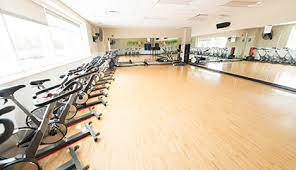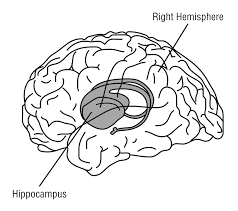Animal Research Discovers Link Between Exercise, HGH, and Cognitive Ability
Research shows that physical activity offers a myriad of health benefits. Some are well known, such as improved muscle mass and reduced body fat. Most people recognize that exercise has a positive effect on mood.
Many people don't realize that exercise can provide several other benefits, including  reduced cancer risk, improved memory, and more.
reduced cancer risk, improved memory, and more.
Recent research by the Queensland Brain Institute in Australia explores the effects of regular exercise in preserving and enhancing cognitive function in aging rats.
The QBI is affiliated with the University of Queensland. The scientists searched for an ideal level of minimal exercise associated with a boost in brain activity.
Memory Recollection and Cognitive Decline Become More Prevalent With Age
As rats and humans get older, their cognitive processing naturally slows down. The rate at which deterioration occurs depends on genetic and environmental factors. Luckily, studies show that there are strategies to mitigate or stall this decline. In this study, scientists found that 35 consecutive days of exercise could restore memory and learning ability in aging rats.
The cognitive benefits of exercise for the rats were not immediate but relied on regular physical activity. Researchers refer to 35 days as the “sweet spot” for exercise to improve brain health in these animals. They hypothesize that humans likely have a sweet spot of their own. This study has been the subject of two papers published in iScience, a highly regarded interdisciplinary scientific journal.
In recent years, scientists have turned to studying the effects of exercise on the hippocampus and other parts of the brain. The hippocampus is a critical cognitive and emotional center in the brain, intrinsically linked to memory creation, emotion, and learning.
Researchers have long recognized that exercise is good for the brain, but the underlying physiology behind those benefits has been unclear. This study is one of many that intend to unshroud the mystery of how physical activity alters the brain.
that exercise is good for the brain, but the underlying physiology behind those benefits has been unclear. This study is one of many that intend to unshroud the mystery of how physical activity alters the brain.
This study provides strong evidence that at least part of the cognitive improvements associated with exercise is the result of increased production of Growth Hormone. Growth Hormone is vital to health and plays a significant role in metabolism, development, and physiological maintenance of both brain and body.
Our bodies need Human Growth Hormone during childhood and adolescence to facilitate growth and maturation, but HGH retains much of its importance even after the end of puberty.
HGH, Exercise, and Brain Function—Two Studies
Dr. Blackmore was one of the presiding scientists that worked on this research. He and his team put together two trials to study how Growth Hormone relates to the cognitive benefits of exercise in rats. The first study sought to determine if Growth Hormone Levels were high when older mice registered improved mental function.
The second study looked for evidence that HGH activity contributed to these benefits. Researchers used several tests to measure positive psychological changes in performance. Researchers also drew blood and tested brain tissue samples from the pituitary for factual information about Growth Hormone Levels.
Researchers compared the mental faculties of younger and older rats. Before the exercise program began, the older rats didn't do as well on behavioral exams as the youthful rats. After the baseline tests, researchers gave the mice a running wheel to use for exercise and periodically performed behavioral analysis.
analysis.
After around 35 days, the older rats reached a level of cognitive performance compared to younger rats. Less than 35 days did not impact the older rats learning ability, while more days showed no further benefits, thus marking 35 days as the “Sweet Spot” for cognitive renewal.
Researchers then took a different group of rats and put them through the same exercise regimen before an alternate mental performance exam.
After getting this data, the scientists looked at how Human Growth Hormone Levels related to these cognitive changes. They discovered that Growth Hormone circulation was highest at the Sweet Spot. Brain analysis showed that the exercise routine increased neural development in the hippocampus.
The second investigation used an MRI to map changes in the brains of the rats. They identified improved neural density in the dentate gyrus, which links the hippocampus to other brain parts. This is the first study to demonstrate that exercise increases neural connections in the brain. Furthermore, the study showed which brain parts were involved in spatial learning.
Learning How Human Brains Benefit from Exercise
As we learn more about the brain and develop new tools to measure brain activity, neurogenesis becomes an increasingly hot topic. Studies show that our brains don't ossify when we reach adulthood but remain capable of further neurological development. This study clearly shows the importance of exercise to cognitive health and function.
Even though more research is necessary to provide information regarding how humans respond mentally to exercise, this is more evidence that cognitive wellness is tightly linked to physical activity and well-being. Future research by Dr. Blackmore and his team will work with humans to determine how these benefits cross over to our species.
Contact us for a FREE, no-obligation discussion concerning the benefits of HGH Replacement Therapy.
- 0001 What Is Adrenal Fatigue [Last Updated On: May 20th, 2025] [Originally Added On: October 23rd, 2020]
- 0002 Understanding Thyroid Function And Diagnosing Thyroid Issues [Last Updated On: May 21st, 2025] [Originally Added On: October 24th, 2020]
- 0003 Twelve Steps To Enhance And Preserve Your Memory [Last Updated On: January 28th, 2025] [Originally Added On: October 25th, 2020]
- 0004 The Psychological And Physiological Effects Of Serotonin [Last Updated On: January 28th, 2025] [Originally Added On: October 26th, 2020]
- 0005 The Facts About Psoriasis: Symptoms And Causes [Last Updated On: January 27th, 2025] [Originally Added On: October 27th, 2020]
- 0006 The Facts About Acromegaly [Last Updated On: May 24th, 2025] [Originally Added On: October 28th, 2020]
- 0007 The Effects Of Hgh Deficiency Upon One Of A Pair Of Twins [Last Updated On: January 27th, 2025] [Originally Added On: October 29th, 2020]
- 0008 Resveratrol Anti-aging Supplementation For Longevity [Last Updated On: May 19th, 2025] [Originally Added On: October 30th, 2020]
- 0009 Sermorelin Acetate Injections With Ghrp-6 [Last Updated On: February 18th, 2025] [Originally Added On: October 31st, 2020]
- 0010 Melatonin The Sleep Hormone How It Impacts Your Health [Last Updated On: May 26th, 2025] [Originally Added On: November 1st, 2020]
- 0011 Mark Cuban To Fund Study On Healing Power Of Hgh [Last Updated On: May 27th, 2025] [Originally Added On: November 2nd, 2020]
- 0012 Mark Cuban Advocates For Hgh As A Rehab And Recovery Tool [Last Updated On: January 26th, 2025] [Originally Added On: November 3rd, 2020]
- 0013 Leptin Hormone Guide: The Effects Of The Satiety Hormone [Last Updated On: January 26th, 2025] [Originally Added On: November 4th, 2020]
- 0014 Human Growth Hormone Deficiency Impact On Sleeping Habits [Last Updated On: January 25th, 2025] [Originally Added On: November 5th, 2020]
- 0015 Human Growth Hormone And Liver Regeneration [Last Updated On: January 25th, 2025] [Originally Added On: November 6th, 2020]
- 0016 Hgh Treatment For Fatty Liver Disease On The Horizon [Last Updated On: February 17th, 2025] [Originally Added On: November 7th, 2020]
- 0017 Your Current HGH Level [Last Updated On: March 28th, 2025] [Originally Added On: November 8th, 2020]
- 0018 Ghrelin The Hunger Hormone [Last Updated On: January 24th, 2025] [Originally Added On: November 9th, 2020]
- 0019 Enclomiphene Citrate Andropause Treatment Up For Fda Approval [Last Updated On: January 24th, 2025] [Originally Added On: November 10th, 2020]
- 0020 Dopamine Pleasure Hormone And So Much More [Last Updated On: April 26th, 2025] [Originally Added On: November 11th, 2020]
- 0021 Diabetes Cure On The Horizon [Last Updated On: January 23rd, 2025] [Originally Added On: November 12th, 2020]
- 0022 Boost Metabolism To Lose Weight And Maintain Weight Loss [Last Updated On: January 23rd, 2025] [Originally Added On: November 13th, 2020]
- 0023 Andropause A Mid-life Hormone Crisis [Last Updated On: February 18th, 2025] [Originally Added On: November 14th, 2020]
- 0024 SOGROYA INJECTIONS FOR HUMAN GROWTH HORMONE DEFICIENCY [Last Updated On: February 19th, 2025] [Originally Added On: March 24th, 2021]
- 0025 How Do High and Low Estrogen Impact Male Health and Wellness? [Last Updated On: February 9th, 2025] [Originally Added On: April 2nd, 2021]
- 0026 The Effects Of Hormone Imbalance On Belly Fat [Last Updated On: February 18th, 2025] [Originally Added On: May 8th, 2021]
- 0027 Could Sunlight Help Remove Rogue Hormones from the Water Supply? [Last Updated On: February 20th, 2025] [Originally Added On: May 29th, 2021]
- 0028 Weekly HGH Therapy Just as Effective as Daily Injections [Last Updated On: April 4th, 2025] [Originally Added On: June 18th, 2021]
- 0029 DHEA and Testosterone: A winning team! [Last Updated On: February 14th, 2025] [Originally Added On: January 19th, 2022]
- 0030 Weekly Hormone Treatments for Adult HGH Deficiency with Sogroya [Last Updated On: February 18th, 2025] [Originally Added On: June 14th, 2022]
- 0031 Ancient Critters Made Human Hormone System What It Is Today [Last Updated On: March 13th, 2025] [Originally Added On: June 26th, 2022]
- 0032 How Substance Abuse Can Affect Your Hormone Levels [Last Updated On: March 16th, 2025] [Originally Added On: August 4th, 2022]
- 0033 A Holistic Approach to Health and Water Safety [Last Updated On: February 7th, 2025] [Originally Added On: February 7th, 2025]
- 0034 Understanding the Role of Sogroya in Adult Human Growth Hormone (HGH) Deficiency Treatment [Last Updated On: February 12th, 2025] [Originally Added On: February 11th, 2025]
- 0035 Andropause: An Examination of Mid-life Hormonal Shifts in Males [Last Updated On: February 16th, 2025] [Originally Added On: February 13th, 2025]
- 0036 Sermorelin Acetate Therapy: A Comprehensive Insight into its Benefits with GHRP-6 [Last Updated On: February 17th, 2025] [Originally Added On: February 14th, 2025]
- 0037 The Dynamic Duo of Male Vitality: Testosterone and DHEA [Last Updated On: February 14th, 2025] [Originally Added On: February 14th, 2025]
Word Count: 849






